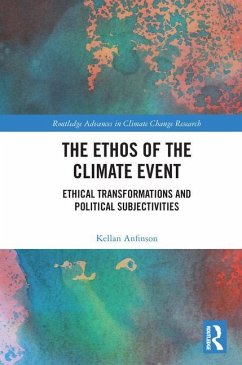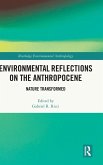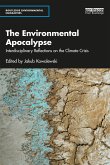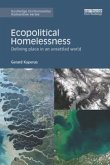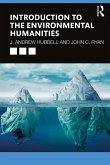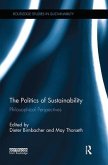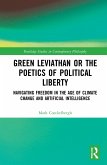This book develops a politico-ethical response to climate change that accounts for the novelty and uncertainty that it entails.
This volume explores the ethical dimensions of climate change and posits that one must view it as a social construction intimately tied to political issues in order to understand and overcome this environmental challenge. To show how this ethos builds upon the need for new forms of responsiveness, Anfinson analyzes it in terms of four features: commitment, worldly sensitivity, political disposition, and practice. Each of these features is developed by putting four thinkers - Kierkegaard, Nietzsche, Schmitt, and Foucault respectively - in conversation with the literature on climate change. In doing so, this book shows how social habits and norms can be transformed through subjective thought and behavior in the context of a global environmental crisis.
Presenting a multidisciplinary engagement with the politics, philosophy, and science of climate change, this book will be of great interest to students and scholars of climate change, environmental politics, environmental philosophy and environmental humanities.
This volume explores the ethical dimensions of climate change and posits that one must view it as a social construction intimately tied to political issues in order to understand and overcome this environmental challenge. To show how this ethos builds upon the need for new forms of responsiveness, Anfinson analyzes it in terms of four features: commitment, worldly sensitivity, political disposition, and practice. Each of these features is developed by putting four thinkers - Kierkegaard, Nietzsche, Schmitt, and Foucault respectively - in conversation with the literature on climate change. In doing so, this book shows how social habits and norms can be transformed through subjective thought and behavior in the context of a global environmental crisis.
Presenting a multidisciplinary engagement with the politics, philosophy, and science of climate change, this book will be of great interest to students and scholars of climate change, environmental politics, environmental philosophy and environmental humanities.
"This innovative analysis leverages insights from Kierkegaard, Nietzsche, Schmitt and Foucault to develop a much-needed ethos for responding to the event of climate change, which is defining the Anthropocene. It is an invaluable study of political subjectivity in these conditions as well as a guide for the ethical transformations required to respond to these challenges." -- Timothy W. Luke, Virginia Polytechnic Institute & State University, USA
"A powerful intervention into the debates on the political philosophy of our climate crisis." -- Joel Wainwright, The Ohio State University, USA
"A powerful intervention into the debates on the political philosophy of our climate crisis." -- Joel Wainwright, The Ohio State University, USA
"This innovative analysis leverages insights from Kierkegaard, Nietzsche, Schmitt and Foucault to develop a much-needed ethos for responding to the event of climate change, which is defining the Anthropocene. It is an invaluable study of political subjectivity in these conditions as well as a guide for the ethical transformations required to respond to these challenges." -- Timothy W. Luke, Virginia Polytechnic Institute & State University, USA
"A powerful intervention into the debates on the political philosophy of our climate crisis." -- Joel Wainwright, The Ohio State University, USA
"A powerful intervention into the debates on the political philosophy of our climate crisis." -- Joel Wainwright, The Ohio State University, USA

